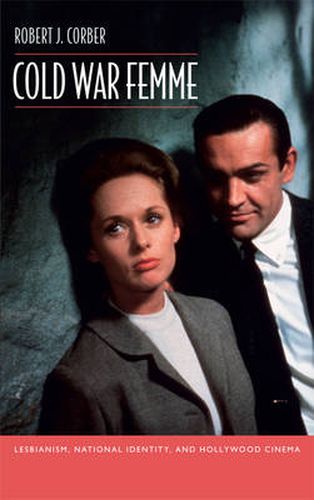Readings Newsletter
Become a Readings Member to make your shopping experience even easier.
Sign in or sign up for free!
You’re not far away from qualifying for FREE standard shipping within Australia
You’ve qualified for FREE standard shipping within Australia
The cart is loading…






In his bestselling book The Grapevine: A Report on the Secret World of the Lesbian (1965), Jess Stearn announced that, contrary to the assumptions of many Americans, most lesbians appeared indistinguishable from other women. They could mingle congenially in conventional society. Some were popular sex symbols; some were married to unsuspecting husbands. Robert J. Corber contends that The Grapevine exemplified a homophobic Cold War discourse that portrayed the femme as an invisible threat to the nation. Underlying this panic was the widespread fear that college-educated women would reject marriage and motherhood as aspirations, weakening the American family and compromising the nation’s ability to defeat totalitarianism. Corber argues that Cold War homophobia transformed ideas about lesbianism in the United States. In the early twentieth century, homophobic discourse had focused on gender identity: the lesbian was a masculine woman. During the Cold War, the lesbian was reconceived as a woman attracted to other women. Corber develops his argument by analyzing representations of lesbianism in Hollywood movies of the 1950s and 1960s, and in the careers of some of the era’s biggest female stars. He examines treatments of the femme in All About Eve, The Children’s Hour, and Marnie, and he explores the impact of Cold War homophobia on the careers of Joan Crawford, Bette Davis, and Doris Day.
$9.00 standard shipping within Australia
FREE standard shipping within Australia for orders over $100.00
Express & International shipping calculated at checkout
In his bestselling book The Grapevine: A Report on the Secret World of the Lesbian (1965), Jess Stearn announced that, contrary to the assumptions of many Americans, most lesbians appeared indistinguishable from other women. They could mingle congenially in conventional society. Some were popular sex symbols; some were married to unsuspecting husbands. Robert J. Corber contends that The Grapevine exemplified a homophobic Cold War discourse that portrayed the femme as an invisible threat to the nation. Underlying this panic was the widespread fear that college-educated women would reject marriage and motherhood as aspirations, weakening the American family and compromising the nation’s ability to defeat totalitarianism. Corber argues that Cold War homophobia transformed ideas about lesbianism in the United States. In the early twentieth century, homophobic discourse had focused on gender identity: the lesbian was a masculine woman. During the Cold War, the lesbian was reconceived as a woman attracted to other women. Corber develops his argument by analyzing representations of lesbianism in Hollywood movies of the 1950s and 1960s, and in the careers of some of the era’s biggest female stars. He examines treatments of the femme in All About Eve, The Children’s Hour, and Marnie, and he explores the impact of Cold War homophobia on the careers of Joan Crawford, Bette Davis, and Doris Day.